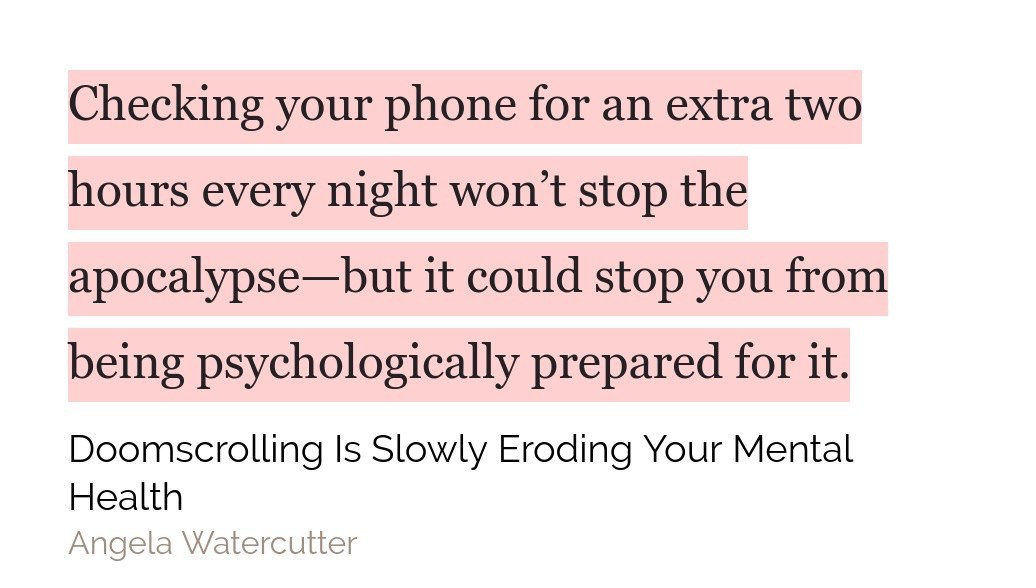AI, School, and You
6/3/24
This was a letter sent to our student body in May 2023 about the rise of AI in education. You can read an essay of mine that expands on these things here.
6/3/24
This was a letter sent to our student body in May 2023 about the rise of AI in education. You can read an essay of mine that expands on these things here.
6/3/24
Let Them Be Born in Wonder is the title of an excellent article that highlights the work of the storied, but relatively short-lived, Integrated Humanities Program at the University of Kansas. Part of the reason the program no longer exists is that a disproportionate number of students in the program were converting to Christianity as a result of their studies. The program was closed for this reason in 1979, despite the fact that the investigative committee found “no evidence that the professors of the program have engaged in such activities in the classroom.
The iPad ad shows the true colors of much of the tech industry. These companies stopped making tools a long time ago. They now make Everything Machines that are designed to free us from the shackles of the analog world. Up next: freedom from the shackles of the physical world. This is Gnosticism revisited, not by ancient religious leaders, but by tech moguls who are driven by far more than profit.
I wonder how much of the push towards thinner and lighter is rooted in a desire to free the user from anything physical? Sure, these devices are (sometimes) easier to transport and (sometimes) easier to hold when they are thinner and lighter. But the ad suggests that thinness is about more than usability. The thinner the device, the less reliant we are on the physical realm.
I am writing this on an iPad. I am well aware of the cognitive dissodance involved here. But my recent flirting with the idea of only purchasing used tech devices did just gain an extra measure of resolve.
This ad reminds us that we have too weak a vision for the value of repair and restoration. As one whose views on automobiles and life have been shaped by decades of listening to Car Talk, and admires the folks behind The Repair Shop, the sharp contrast between this ad and the spirit of shows like these is palpable.
The ad works, in a world where advertising is successful in so much as it is viral.
1/19/24
When you used to store your family photos in physical albums, and then you were convinced to store them all on a hard drive, and then you were convinced by a large for-profit company to store them in the cloud for free, until the cloud became the only place your photos were stored, and the company decided to charge a monthly fee in order for you to continue to store all of your photos online, you have been had.
1/16/24
Many people are using large language models to write for them because they are acutely aware of their own deficiency in the art of rhetoric. But here is the rub: relying on these tools because you are already deficient in the art of rhetoric only makes you increasingly so. Multiply this out on a societal scale, and the outlook becomes even more bleak. Imagine communities of people who already have trouble thinking and communicating clearly about things that matter choosing to outsource their thinking and communication to a tool that can’t think.
12/25/23
2024 will mark the 40th anniversary of the Apple Macintosh. To properly mark the occasion, and in a nod to Steve Jobs—who never wanted our devices to become part of who we are—I am taking some intentional steps towards analoging my life. I will do this in two primary ways, one aesthetic, and one ascetic. For the former, I will work towards making analog things more intellectually and physically attractive, when reasonable.
12/7/23
Smartphone and social media addiction is a real plague affecting younger generations. To deny this in any way is to be woefully and intentionally ignorant of reality. At the same time, part of the reason this is a problem in the first place is that the exact same is true of older generations. See Sherry Turkle’s excellent book Reclaiming Conversation for hard data on this front. An illustration from my commute this morning: traffic was held up at a left-turn light because the lady in front of me put on her readers to check her phone.
Are you against computers, Socrates?
Socrates: Of course not. Am I against brains? I am against confusion—against personalizing instruments and instrumentalizing persons—which is what is at stake in this philosophical question about human and computer intelligence.
From Peter Kreeft’s brilliant book The Best Things in Life, which imagines dialogues that occur when Socrates visits a modern university campus. Even more poignant: this book was written in 1984.
5/8/23
The paragraph below, from Alan Jacobs, is an important one to comprehend. The rest of his post helps frame some of the wider issues at hand, and points to other helpful works for those seeking to read more widely on these things. I want to make a stronger argument: that the distinctive “occupational psychosis” of Silicon Valley is sociopathy – the kind of sociopathy embedded in the Oppenheimer Principle. The people in charge at Google and Meta and (outside Silicon Valley) Microsoft, and at the less well-known companies that are being used by the mega-companies, have been deformed by their profession in ways that prevent them from perceiving, acknowledging, and acting responsibly in relation to the consequences of their research.
Working title for a writing project I am chipping away at these days:
Presence in a Virtual Age: a sacramental theology you didn’t know you needed
I have to imagine that those who work towards developing or are in any way excited about the Metaverse have only ever watched the first five minutes of a Black Mirror episode.

All work email is officially blocked on all devices for the next eight days. One of the few true breaks from work in the year. Looking forward to it … especially after the withdrawal dissipates.

But a deeper question lurks beneath this debate: are these services making you a better or worse version of yourself?
On social media and character, by Cal Newport.
6/16/20
They said ‘Vide, look! How the love one another.’ They did not say, ‘Aude, listen to the Christians’ message’; they did not say ‘Lege, read what they write. Hearing and reading were important … But we must not miss the reality: the pagans said look! Alan Kreider, The Patient Ferment of the Early Church The Roman Empire was “(almost) infinitely tolerant” of a variety of religions. Christianity, on the other hand, is rooted in a historical and exclusive truth claim about Jesus of Nazareth.